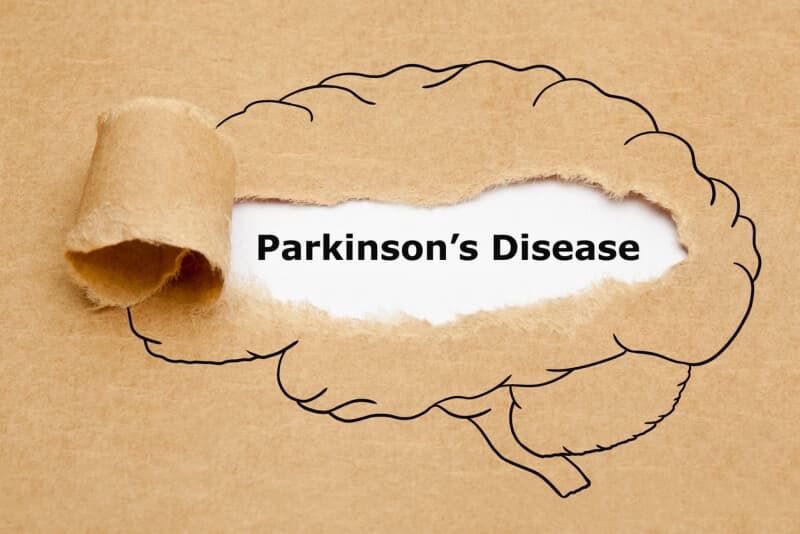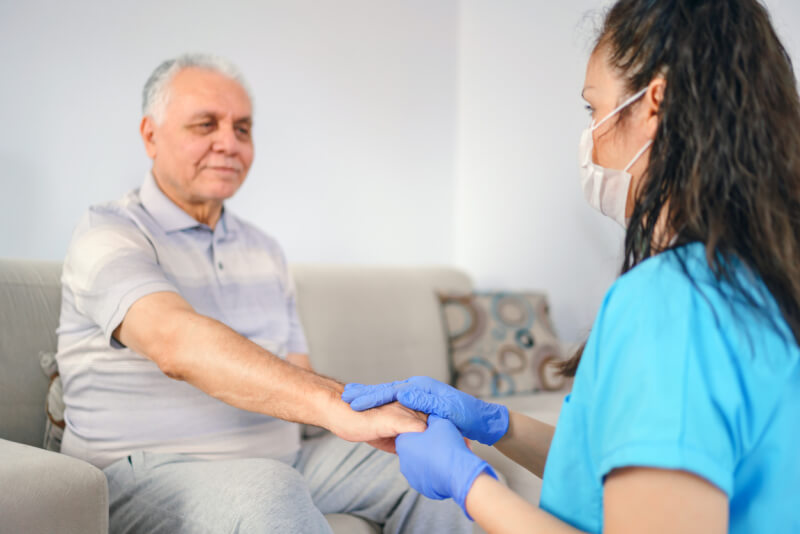
Parkinson's disease (PD), Alzheimer's disease, and Huntington's disease patients have testosterone deficiency. It is unknown whether testosterone therapy (TT) will be of significant help to men with borderline hypogonadism and neurodegenerative illnesses. In previous studies, doctors found that testosterone deficiency is more prevalent in Parkinson's disease patients than age-matched patients.
So does hormone replacement therapy help male patients with Parkinson's disease? A report suggests that some nonmotor symptoms responded well to testosterone therapy in two small open-label studies. Generally, testosterone replacement was tolerated in older men with PD and possible testosterone deficiency or low testosterone levels.
Bioidentical hormone replacement therapy mimics the structure of human endogenous hormones by synthesizing hormones from plant compounds derived from yams. These hormones are similar to estrogen and testosterone present in the human body.
They have minimal side effects and consequences than a synthetic hormone or animal-derived. Estrogen (17 beta-estradiol, estrone, and estriol), progesterone, testosterone, and Dehydroepiandrosterone (DHEA) are examples of bioidentical hormones.
Some symptoms of menopause are treatable using the combination of estrogen and progestin - these are two female sex hormones. Hormone replacement therapy works by replacing the estrogen or sex hormone that the body no longer produces.
Estrogen relieves upper-body warmth, sweating, heat (hot flashes), vaginal symptoms (itching, burning, and dryness), and urinary problems. However, it does not treat other menopause symptoms such as uneasiness or depression.
Estrogen therapy also protects menopausal women from bone weakening (osteoporosis). In hormone replacement therapy, progestin is combined with estrogen to lower the risk of uterine cancer in women who still have their uterus.

The destruction of dopaminergic neurons in the substantia nigra pars compacta and a loss in dopamine activity in the striatum define Parkinson's disease. Various factors increase the risk of developing PD, although most patients have unexplained Parkinson's disease.
Some of these factors are gender, genetic mutations, excitotoxicity, oxidative stress, mitochondrial dysfunctions, neuroinflammation, and protein degradation system dysfunction. Testosterone replacement therapy has recently been found to enhance refractory nonmotor symptoms in male PD patients with a low testosterone level.
Many of the nonmotor symptoms of PD, such as lack of dopamine, loss of energy, hormonal imbalance, and depression, correlate with testosterone deficiency symptoms. Replacement therapy for males with Parkinson's symptoms and concomitant testosterone deficiency could be a valuable complement to antiparkinsonian treatment.
A progressive open-label preliminary research of testosterone topical gel was given daily to males with PD symptoms and testosterone deficiency. All ten patients were observed for one month, and six patients were monitored for three months in total.
Patients were given testosterone deficiency questionnaires, cognitive examinations, and scales of PD nonmotor and motor symptoms within 1 and 3 months. Patients had an average increase in free testosterone level from baseline (53 pg/mL) to a 30-day follow-up check (131 pg/mL) and a three-month follow-up appointment (98 pg/mL) with everyday topical testosterone gel.
Testosterone deficiency symptoms improved from baseline (7.9 deficiency symptoms) to 1 month (5.6 deficiency symptoms) and three months (5.8 deficiency symptoms) in these patients (St Louis Testosterone Deficiency Questionnaire). After a month, the Integrated Parkinson's Disease Rating System showed improvement.
In males with Parkinson's disease, a daily dosage of transdermal testosterone gel alleviated symptoms of testosterone deficiency. Although there were improvements in some nonmotor and motor symptoms of Parkinson's disease, further placebo control research needs to be larger to resolve these significant issues.
Future research is necessary to determine whether testosterone deficiency is a comorbidity in Parkinson's disease or plays an essential role in the disease's pathogenesis.

Hormone replacement therapy may benefit any postmenopausal woman or a male patient over the age of 50. Male PD patients or anyone who has had breast cancer, endometrial cancer, or prostate cancer who wishes to participate in this treatment will need to get consent from an oncologist.
These patients and individuals with a history of strokes or blood clots in their legs or lungs are good candidates for bioidentical hormone replacement therapy. Patients with Parkinson's disease who also undergo deep brain stimulation (DBS) therapy in their illness management are primarily included in testosterone replacement therapy.
DBS sessions in male rats and male mice have been shown to protect dopaminergic neurons from the toxic effects of intrastriatal 6-hydroxydopamine. Gonadal hormones regulate glial response to injuries. Circulating estradiol's neuroprotective effects are mainly dependent on its potent anti-inflammatory effects on astrocytes.
Moreover, motor and memory assessments were performed on both male and female mice. In addition, peripheral deficits (olfactory and stool collection tests). The female transgenic mice showed loss of nigral dopaminergic neurons but neither microgliosis nor astrogliosis.
Revitalize You MD have introduced the public and PD patients with motor symptoms, the counseling, and administration of testosterone treatment. Healthcare professionals must wait at least four weeks to see how the hormone therapy affects a patient's hormone levels and at least eight weeks to see improvements in hormone imbalance.
Until now, age is the only known risk factor for Parkinson’s disease. Several other risk factors have been studied extensively, including gene polymorphism, smoking cigarettes, alcohol and caffeine consumption, pesticides, and a history of head trauma, hypertension, and diabetes mellitus.
However, the impact of most of these factors on the likelihood of developing Parkinson disease is unexplained.
Revitalize You MD constantly monitors hormone levels for side effects and safely determines whether testosterone pellets should be adjusted until it reaches an appropriate testosterone level. We can also assist you in deciding whether hormone replacement therapy is the best treatment option for Parkinson Disease.
Our high-quality care, overall safety profile, and medical expertise have been our specialty and helped us establish our reputation -- not only for hormone therapy, estrogen treatment but also other medical operations. Give us a call today to speak about the non motor symptoms of Parkinson's Disease and other relief alternatives.
The staff is great, the products work!! I am very pleased with my results!